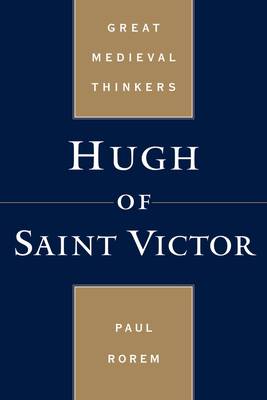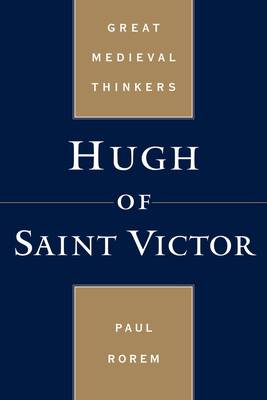
- Afhalen na 1 uur in een winkel met voorraad
- Gratis thuislevering in België vanaf € 30
- Ruim aanbod met 7 miljoen producten
- Afhalen na 1 uur in een winkel met voorraad
- Gratis thuislevering in België vanaf € 30
- Ruim aanbod met 7 miljoen producten
Omschrijving
Born in Saxony in 1096, Hugh became an Augustinian monk and in 1115 moved to the monastery of Saint Victor, Paris, where he spent the remainder of his life, eventually becoming the head of the school there. His writings cover the whole range of arts and sacred science taught in his day. Paul Rorem offers a basic introduction to Hugh's theology, through a comprehensive survey of his works. He argues that Hugh is best understood as a teacher of theology, and that his numerous and varied writings are best appreciated as a comprehensive pedagogical program of theological education and spiritual formation. Drawing his evidence not only from Hugh's own descriptions of his work but from the earliest manuscript traditions of his writings, Rorem organizes and presents his corpus within a tri-part framework. Upon a foundation of training in the liberal arts and history, a structure of doctrine is built up, which is finally adorned with moral formation. Within this scheme of organization, Rorem treats each of Hugh's major works (and many minor ones) in its appropriate place, orienting the reader briefly yet accurately to its contents, as well as its location in Hugh's overarching program of theological pedagogy.
Specificaties
Betrokkenen
- Auteur(s):
- Uitgeverij:
Inhoud
- Aantal bladzijden:
- 256
- Taal:
- Engels
- Reeks:
Eigenschappen
- Productcode (EAN):
- 9780195384376
- Verschijningsdatum:
- 8/04/2009
- Uitvoering:
- Paperback
- Formaat:
- Trade paperback (VS)
- Afmetingen:
- 137 mm x 206 mm
- Gewicht:
- 317 g

Alleen bij Standaard Boekhandel
Beoordelingen
We publiceren alleen reviews die voldoen aan de voorwaarden voor reviews. Bekijk onze voorwaarden voor reviews.









